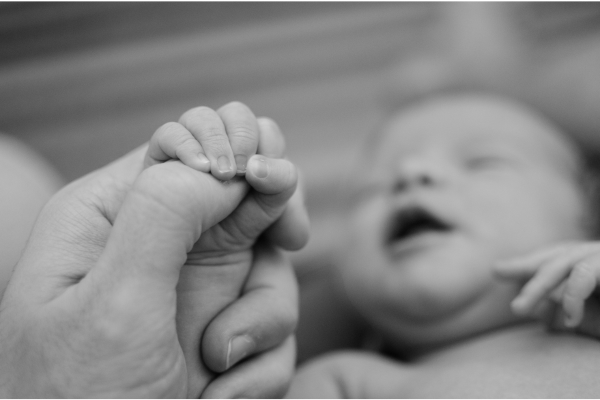Navigating the Postpartum Journey: Understanding the Stages

The postpartum period, often referred to as the fourth trimester, is a critical and transformative time for new mothers. It encompasses the weeks and months following childbirth, during which a mother’s body and mind undergo significant changes as they adjust to the demands of caring for a newborn. Understanding the stages of postpartum recovery can help new mothers and their families navigate this period with greater ease and confidence.
Immediate Postpartum (Birth to 24 Hours)
Physical Changes: The body begins the recovery process immediately after childbirth. This includes the delivery of the placenta and the uterus beginning to contract back to its pre-pregnancy size. Mothers may experience bleeding (lochia) and discomfort from labor or cesarean section. This can last for several weeks, starting as bright red and gradually becoming lighter and more watery.
Emotional State: Feelings of relief, joy, and exhaustion are common. Hormonal shifts can cause a range of emotions.
Care Tips: Rest as much as possible, stay hydrated, and seek support from healthcare providers for breastfeeding and any medical concerns.Early Postpartum (First Week)
Physical Changes: Continued uterine contractions help reduce bleeding. Soreness in the perineal area, breast engorgement, and the onset of milk production are typical. After delivery, your uterus will continue to contract to reduce bleeding and return to its pre-pregnancy size. These contractions, often called “afterpains,” can be more noticeable during breastfeeding due to the release of oxytocin.
Emotional State: Baby blues can occur, characterized by mood swings, irritability, and anxiety due to hormonal changes.
Care Tips: Focus on healing and bonding with the baby. Accept help with household tasks and meals, and seek support for breastfeeding challenges.
Perineal Soreness: If you had a vaginal delivery, the perineal area (between the vagina and anus) may be sore, especially if you had an episiotomy or experienced tearing. Pain relief measures include ice packs, sitz baths, and over-the-counter pain medications as recommended by your healthcare provider.
Cesarean Section Recovery: If you had a C-section, you’ll have an incision that requires care. You may experience more intense pain initially and will need to avoid heavy lifting and strenuous activities for several weeks to allow the incision to heal properly.
Breast Changes: Your breasts will start to produce colostrum, the first form of breast milk, which is rich in nutrients and antibodies. Milk production will increase over the first few days, and your breasts may feel engorged and tender.
Hormonal Shifts: Hormone levels fluctuate dramatically after birth, which can impact your mood, energy levels, and physical sensations. This is a normal part of postpartum recovery.
Emotional Experiences
Euphoria and Relief: Many new mothers feel an overwhelming sense of joy and relief after giving birth. The intense emotions associated with meeting your baby for the first time can be profound.
Baby Blues: It’s common to experience “baby blues,” characterized by mood swings, irritability, anxiety, and sadness. This is due to hormonal changes and usually peaks around day four or five, resolving within two weeks.
Bonding with Baby: Skin-to-skin contact and breastfeeding can enhance bonding. Some mothers feel an immediate connection, while for others, it may take a bit more time to develop this bond.
Exhaustion: Labor and delivery are physically demanding, and combined with the demands of caring for a newborn, can lead to significant exhaustion.
Practical Considerations
Breastfeeding and Feeding: Establishing breastfeeding can be challenging but rewarding. Seek support from lactation consultants if you encounter difficulties. If you are formula feeding, ensure you understand the preparation and feeding schedule.
Newborn Care: You’ll be learning to care for your newborn, including feeding, diapering, and soothing techniques. Hospital staff and pediatricians can provide guidance and support.
Postpartum Care: Follow your healthcare provider’s instructions for postpartum care, including managing perineal or C-section pain, monitoring bleeding, and attending follow-up appointments.
Support System: Accept help from family and friends. Having a strong support system can alleviate stress and allow you to focus on recovery and bonding with your baby.
Hydration and Nutrition: Drink plenty of fluids, especially if breastfeeding, and eat nutrient-rich foods to support recovery and energy levels.
Late Postpartum (Weeks 2-6)
Physical Changes: Lochia flow reduces and eventually stops. The body continues to heal, and energy levels gradually improve.
Emotional State: Hormones start to stabilize, but some women may experience postpartum depression. It’s important to monitor mental health and seek help if needed.
Care Tips: Gradually increase physical activity as recommended by a healthcare provider. Continue to prioritize rest and nutrition.
Extended Postpartum (Weeks 6-12)
Physical Changes: By this time, most physical healing is complete, and menstruation may resume for some women. Weight loss from pregnancy may continue.
Emotional State: Many women start to feel more like themselves as routines are established. However, postpartum depression can still occur, and ongoing support is essential.
Care Tips: Reconnect with pre-pregnancy activities and social circles. Attend postpartum checkups to ensure overall health and wellness.
Long-Term Postpartum (3-12 Months)
Physical Changes: Full physical recovery can take up to a year. Hormonal fluctuations continue, especially if breastfeeding.
Emotional State: Identity shifts and adjustments to the new family dynamic are common. This period may bring a mixture of joy and ongoing challenges.
Care Tips: Maintain a healthy lifestyle, seek social support, and continue monitoring mental health. Regular exercise, balanced nutrition, and sleep are crucial.
Tips for a Smooth Postpartum Recovery
Self-Care: Prioritize rest, hydration, and nutrition. Your body needs time to recover, so give yourself grace.
Support System: Lean on family, friends, and postpartum support groups. Don’t hesitate to ask for help.
Professional Help: Attend all postpartum checkups and consult with lactation experts if breastfeeding. Seek mental health support if experiencing symptoms of postpartum depression or anxiety.
Bonding with Baby: Spend time skin-to-skin with your newborn, which can enhance bonding and promote emotional well-being.
Realistic Expectations: Understand that recovery takes time. Every mother’s journey is unique, so avoid comparing yourself to others.
I think its important we normalize the changes during the post partum period. The postpartum period is often filled with unexpected surprises. While there’s plenty of information about the basics of recovery, there are some peculiar and surprising aspects that many new mothers wish they had known beforehand. Here’s a list of ten weird things about the postpartum period that might catch you off guard.

The “Afterpains” Can Be Intense: After childbirth, your uterus continues to contract to shrink back to its pre-pregnancy size, and these contractions can be quite painful. They are often more pronounced during breastfeeding due to the release of oxytocin. Tip: Use heat packs, practice deep breathing, and consult your doctor about pain relief options if necessary.
Night Sweats Are Real: Hormonal changes can lead to intense night sweats that leave you drenched. It’s your body’s way of getting rid of excess fluid retained during pregnancy. Tip: Keep your bedroom cool, wear light sleepwear, and have a change of clothes and extra sheets handy.
Hair Loss Can Be Alarming: Many women experience significant hair loss a few months postpartum due to hormonal shifts. This can be quite shocking if you’re not prepared for it. Tip: Use gentle hair care products, avoid tight hairstyles, and consider a diet rich in vitamins and minerals to support hair health.
You Might Feel Like You Have the Flu: The hormonal rollercoaster can cause flu-like symptoms such as chills, body aches, and a general feeling of malaise. Tip: Rest, stay hydrated, and consult your healthcare provider if symptoms are severe or persistent.
Swelling Doesn’t Stop at Delivery: Swelling in your legs and feet can persist or even worsen after delivery due to fluid retention and the physical stress of labor. Tip: Elevate your legs, drink plenty of water, and wear compression socks if needed.
Postpartum Body Odor: Your body odor might change postpartum due to hormonal fluctuations and increased sweating. Some women notice a stronger or different smell. Tip: Maintain good hygiene, shower regularly, and use a mild deodorant.
Bizarre Cravings and Thirst: Just like during pregnancy, you might experience unusual food cravings and an insatiable thirst, especially if you’re breastfeeding. Tip: Listen to your body, keep healthy snacks and water nearby, and enjoy your cravings in moderation.
The Emotional Rollercoaster is No Joke: Beyond the baby blues, which are common, some women experience intense mood swings and emotional highs and lows. This is partly due to hormonal changes and the stress of adjusting to new motherhood. Tip: Communicate openly with your partner and support system, practice self-care, and seek professional help if feelings of depression or anxiety persist.
Breast Engorgement and Leaking: Even if you’re not breastfeeding, your breasts will produce milk, leading to engorgement and potential leaking. This can be uncomfortable and messy. Tip: Use breast pads, wear a supportive bra, and express a small amount of milk to relieve discomfort if necessary.
Changes in Bathroom Habits: Constipation, hemorrhoids, and difficulty urinating are common postpartum issues. You might also find that you pee a lot as your body sheds excess fluid.
Tip: Drink plenty of water, eat high-fiber foods, and consider stool softeners if recommended by your doctor. Take your time and be gentle with yourself in the bathroom.
The postpartum period is a time of profound change and adjustment. By understanding the different stages and prioritizing self-care and support, new mothers can navigate this journey with greater confidence and well-being. Remember, it’s okay to seek help and take things one day at a time. Your health and happiness are just as important as your baby’s.
For more resources and support, consider reaching out to local postpartum support groups, healthcare providers, and online communities dedicated to new mothers.



